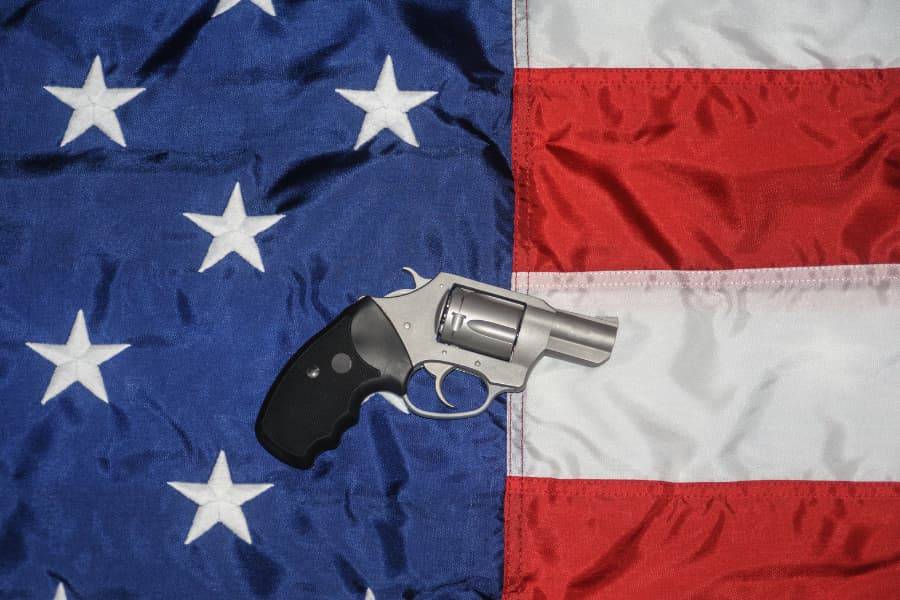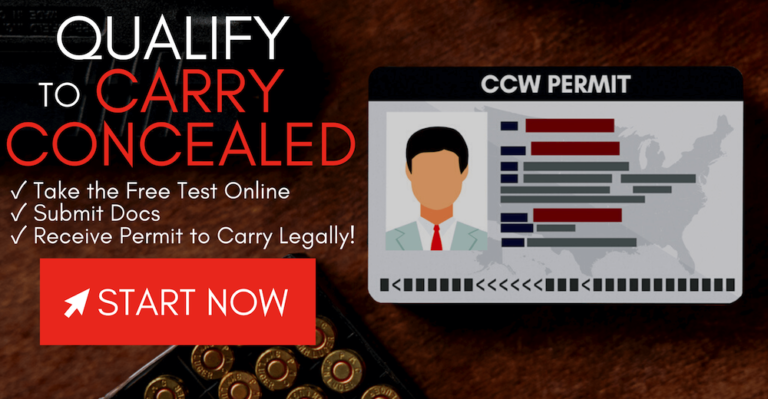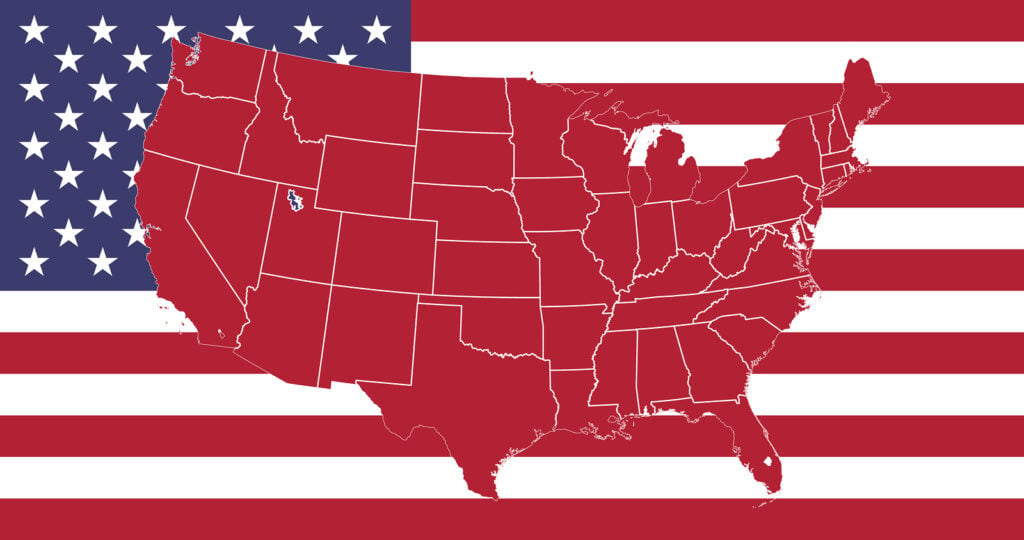As a gun owner, you have many rights. But do you fully understand them?
For example, you have probably heard terms like “constitutional carry.” But do you find yourself asking questions, like what does constitutional carry mean?
It’s also important to know what states have constitutional carry and which states have permitless carry. That way, you know exactly what your rights are no matter what state you travel to.
Ready to learn what you need to know to keep you and your family safe? Keep reading to discover the answers you need!
What Does Constitutional Carry Mean?
Our guide is going to walk you through the important details about constitutional carry. First, though, we need to start by answering the big question: what does constitutional carry mean?
In short, a constitutional carry state is a state that places no restrictions on your right to both possess and carry around firearms. While the list of constitutional carry states is always growing (more on this later), there are sometimes variations in how they carry out constitutional carry.
For example, states can set their own regulations about who can openly carry things like handguns. This includes regulations on things like the gun owner’s age, residency, location, and other potential factors.
Long story short? Even if you’re in one of the constitutional carry states, we recommend that you look into your state and local regulations before you start carrying your guns around wherever you go.
Do You Need A Concealed Carry Permit For Constitutional Carry States?
Concealed carry is becoming an increasingly popular option for gun owners throughout the country. It’s not hard to see why: concealed carry permits allow you to carry your gun around to places that you might not otherwise be able to take it. But that brings us to the next big question: do you need a concealed carry permit for constitutional carry states?
The short answer is “no.” By definition, a constitutional carry state does not require you to have any special permit or training before you carry your firearm around.
With that being said, even those in constitutional carry states should strongly consider getting a concealed carry permit. Why? As our guide will reveal, there are plenty of non-constitutional carry states that border the constitutional carry ones.
That means that if you are traveling from place to place without a concealed carry permit, you may face many restrictions about where you can carry your gun on your person and where you cannot. With a concealed carry permit, you will have an easier time carrying your firearm while you travel through the states.
The Spirit of Constitutional Carry
Sometimes, even veteran gun owners are surprised to discover the existence of constitutional carry. Basically, if you’ve spent most or all of your life in states requiring some type of permit to buy or carry firearms, then you may be surprised that other states basically have no restrictions at all.
To help you understand constitutional carry, it’s important to understand the spirit of it. And the spirit is right there in the name since constitutional carry derives from the Constitution itself!
As a term, “constitutional carry” refers to the fact that the United States Constitution places no restriction on your right to bear arms. Honestly, this is the true spirit of the Second Amendment, and it is something that our Founding Fathers fought and bled for.
Obviously, individual states retain the right to both interpret the Second Amendment differently and to set their own laws and regulations. But it’s not surprising that many gun owners enjoy the freedom that constitutional carry affords them by not limiting their right to bear arms.
What Does Permitless Carry Mean?
We have been focusing quite a bit on what constitutional carry means. However, when you research this topic, you may encounter another term: permitless carry. What does permitless carry mean, and what does it have to do with constitutional carry?
The answer is quite simple: these terms are one and the same. Some states and gun owners prefer to call it “constitutional carry” and others prefer to call it “permitless carry.”
While we love the flavor of calling it constitutional carry, we have to admit that “permitless carry” is an easier term for many people to understand. After all, it gets right to the point that gun owners need no special permits in order to carry their firearms in either an open or concealed manner.
The Benefits of Constitutional Carry
Now you know a bit more about what constitutional carry is. But that brings us to another important question: what are the different benefits of living in a constitutional carry state?
Perhaps the biggest benefit is that this policy makes it easier for law-abiding citizens to own and use firearms. The guns themselves aren’t cheap, and it often seems like ammo gets more expensive by the year. When you add the cost of getting a gun license in the mix, many people are simply unable to afford to get a firearm.
Cost is also a factor for people who live outside of the constitutional carry states and who want to get a concealed carry permit. While we pride ourselves on offering very affordable concealed carry courses, there are many other overpriced courses throughout the country. In a constitutional carry state, there is no need for someone to pay an additional fee if they wish to carry a firearm around in a concealed manner.
Constitutional carry states also let you purchase new firearms with far less waiting. In states requiring gun licenses, you might have to wait up to 90 days to receive your gun. That means three months of being more vulnerable than you need to be.
And that brings us to the final benefit of constitutional carry: by making it easier, quicker, and more affordable for you to purchase and carry firearms, constitutional carry also makes it easier for you to defend yourself and your family. Just imagine how many tragedies could have been averted if the victims of shootings and other violence were armed.
With constitutional carry, every citizen is that much safer from a potentially violent attack.
What States Have Constitutional Carry?
Now you know more about what constitutional carry is and what its benefits are. However, some states have constitutional carry and some don’t. With that in mind, which states have constitutional carry?
The list of states is as follows:
- Alaska
- Arizona
- Arkansas
- Iowa
- Idaho
- Kansas
- Kentucky
- Maine
- Mississippi
- Missouri
- Montana
- New Hampshire
- North Dakota
- Oklahoma
- South Dakota
- Tennessee
- Texas
- Utah
- Vermont
- West Virginia
- Wyoming
The list of states that don’t require a permit to carry is always growing, so even if you don’t live in a state with constitutional carry now, that could always change in the future.
Examples of Constitutional Carry Restrictions
Previously, we touched on the fact that states may implement constitutional carry in their own ways. And that means there are some mild restrictions in some states you should be aware of.
For example, states are generally split on whether a person exercising their constitutional carry rights must be 18 or 21 to do so. Even Texas, a state we typically see as holding on to its cowboy values (including a love of firearms) requires people to be 21 or older to engage in constitutional carry.
Additionally, some states have a residency requirement attached to constitutional carry. North Dakota requires that someone be a resident for at least one month before they can carry a concealed handgun. And both West Virginia and Wyoming limit constitutional carry to legal residents of those states. That may seem annoying to the average gun owner, but some of these states see themselves as taking simple measures to keep outsiders from coming in and causing trouble.
Constitutional Carry and State Crime Rates
For a long time, many people (especially non-gun owners) were concerned about constitutional carry. The sad fact is that we live in a world with a growing number of mass shootings and other gun-related crimes. Because of this, many worried that allowing people to carry concealed weapons without permits or restrictions just about everywhere would lead to a rise in crime rates.
However, this has not proven true. In states that adopt constitutional carry laws, there has not been a real uptick in crime (gun-related or otherwise) since then. This may not be a surprise to longtime gun owners because it echoes what happened across the country when different states began offering concealed carry permits.
Florida is a great example of this. The state began offering concealed carry in 1987, and opponents of this claimed that we would soon see a major uptick in gun violence. And to see if those claims were true, Dade County began a special tracking program to note how many crimes were being perpetrated by concealed carry users versus everyone else.
The tracking program was dismantled in 1992. Why? Because the state discovered that it was extraordinarily rare for concealed carry owners to commit a crime!
This is important because at the end of the day, constitutional carry is a way of granting a kind of concealed carry status to everyone in the state. This doesn’t increase the crime rate and may actually lower it. And that’s because of something gun owners have said all along: truly, an armed society is a polite society!
What Does Shall Issue Mean?
We outlined the different states that offer constitutional carry. But if a state doesn’t offer constitutional carry, then it is either a “shall issue” state or a “may issue” state. And it’s important to know the difference.
In a shall issue state, the state establishes the different rules required for you to get a firearm permit. So long as you meet those requirements, the state must issue the permit to you.
Keep in mind that this is simply to own and use a firearm. After getting your license in a shall issue state, you still need to get a concealed carry permit.
What Does May Issue Mean?
If your state does not offer constitutional carry and is not a shall issue state, then it is a may issue state. But do you know what that term actually means?
Like shall issue states, may issue states establish their own rules to get a gun license. Unlike shall issue states, though, may issue states are not obligated to give a license to anyone who meets those requirements.
Places like California, for example, may require that someone be a moral and upstanding citizen before they can get a license. Of course, how moral and upstanding a person really is would be left to the discretion of someone like a county sheriff. Every may issue state has its own rules regarding this, and these rules may just keep you from getting a gun even if you meet the other requirements.
On top of that, may issue states retain the discretion to deny someone a concealed carry permit even after they pass the class. This can be particularly disappointing because, at this point, someone has potentially spent a lot of time and money simply trying to get their permit!
Most people cannot easily move to an entirely different state, so it’s important to know what your own state’s regulations regarding owning and carrying a gun are. And as we noted above, if you really want the freedom to carry your gun in as many places as possible, it’s important to find reliable and affordable concealed carry classes.
Be Prepared For Anything
Now you have an answer to the question “what does constitutional carry mean.” And you know why a concealed carry permit is so important, even for those who live in a constitutional carry state. But do you know where you can get the best concealed carry training at the most competitive prices?
We make it easy for you to get your permit no matter where you live. If you’re ready to be prepared for anything no matter where you go, come get certified today!








